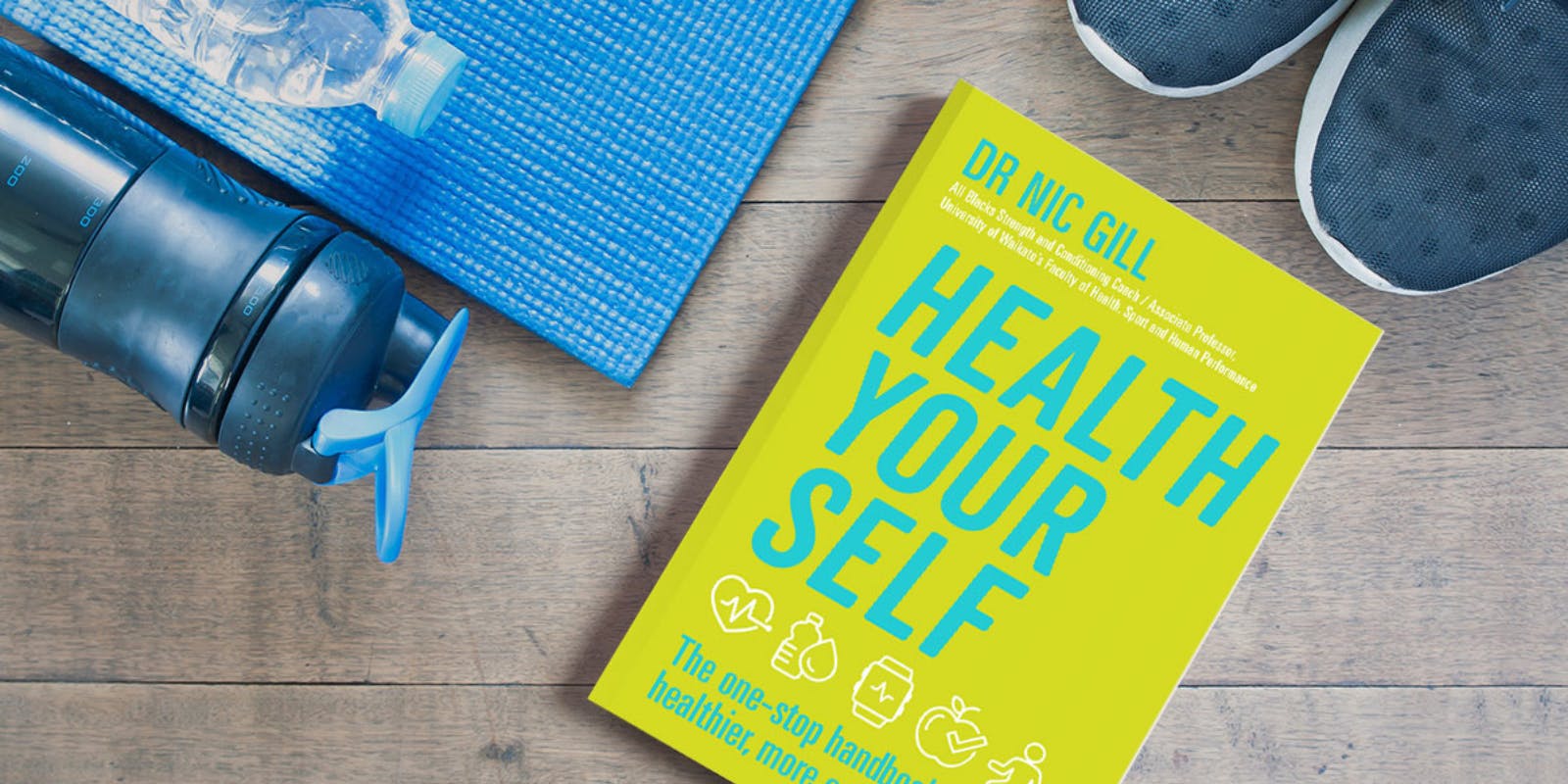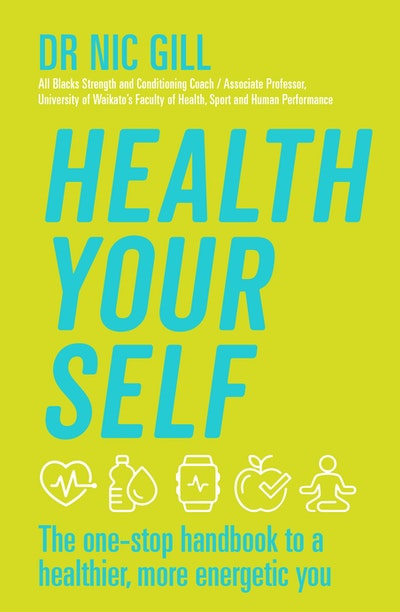10 questions with Dr Nic Gill, All Blacks’ strength and conditioning coach and author of Health Your Self.
With so many different fad diets, celebrity endorsed exercise programmes and contradictory information, it's hard to know just who to trust when it comes to healthy, balanced eating and exercise.
We sat down with an expert, All Blacks’ strength and conditioning coach Dr Nic Gill, and asked him our top 10 questions about health, well-being and fitness.
1. If you could tell someone to change three things about their diet to get healthier, what would they be?
More colour, less white, portion size! Colourful, above-the-ground veges are full of good stuff, and contain minimal calories. Dull white food tends to be full of calories/energy and minimal nutrients. Stick to the ‘hand’ guidelines for portions and don’t over eat for your activity levels.
2. Does it make any difference if you exercise in the morning or evening?
I think activity done at any time of day is great. Exercise when it works for you, and it’s more likely to become a regular, consistent thing. Some people love to exercise in the morning to kickstart the day, while others wait until the evening to have something to look forward to. It doesn’t matter when . . . just that you do some!
3. What’s the best measure for being healthy?
‘Healthy’ is a very general term and is likely to be measured differently by different people. I think being healthy means feeling energised and happy, and being able to get the most out of your day. That’s all subjective and is influenced by many things. But an objective measure of being healthy could be having a waist circumference that is less than half your height. Many of us carry body fat around the waist that increases the risk of many diseases. So we should consider this combination.
4. Surely even elite rugby players like the All Blacks have bad days . . . what can you tell normal people about how to overcome low motivation or tiredness?
Don’t listen to the voice inside your head that says ‘stay in bed, it’s cold and dark!’. Often the most rewarding exercise sessions are the ones we didn’t feel like doing. If you can just ease yourself into the session you’ll feel way better afterwards. It’s okay to adapt a plan to suit you, and it’s OK to have a bad day. Don’t beat yourself up if you eat a bit too much at a BBQ, or if you don’t exercise over the weekend. Just make sure you eat well the next day, or that you get back out there on Monday! The key thing is to get back on track.
5. How much water should you drink per day for your overall health?
Everyone needs water to function, but everyone’s body is different. Track the colour of your urine over a week and keep an eye on how much water you need to drink to keep it clear or light yellow. The minute you see it’s yellow you know you need to get some water in! If you exercise you normally need to drink a little more in relation to how much you have sweated.
6. Should you exercise straight after eating or allow food to settle?
It is okay not to eat before exercise, but it does depend on what type of exercise you’re doing and how long you’re exercising for. Many people can exercise on an empty stomach and feel good, while others need to have a little bit of food prior to exercising. Experiment to find out what works best for you. Remember, we all have a lot of stored energy that our bodies can use to fuel exercise without needing to eat. Don’t think that you need to have eaten food to have energy to burn.
7. What’s the minimum amount of exercise we should do a week?
There’s no magic rule here, but some form of weight-bearing exercise three times a week is a good minimum. However, being active to some degree every day is important. People tend to make exercise a chore, rather than making it fun, social – something we look forward to doing. Explore what you enjoy, and then it won’t be about achieving the minimum.
8. Is aerobic exercise better than non-cardio?
A combination of weight-bearing, resistance and cardio activity is best. Cardiovascular training will work on your ‘aerobic fitness’, which is your body’s ability to transport oxygen around the body in the blood. It’s a way of your body becoming efficient at doing work. The difference between weight bearing and non-weight bearing exercise is the beneficial effect of ‘strengthening bones’. Resistance training of sorts will help strengthen the muscles and the co-ordination of your muscular skeletal system.
9. Does it matter what you eat at what time of day?
The key to balanced nutrition is fuelling your body for what you have done or will do. The make-up of your meals is always important, but there are no hard and fast rules. Get loads of colour in, and ensure there’s a small portion of protein in every meal e.g. egg, meat or beans. Eat the amount of carbohydrates you need to fuel your activity. If you are sitting in an office all day you need minimal carbohydrates, but if you’re out on the farm digging ditches, you need more.
10. Belly fat – why is this the hardest to lose, and what can we do to shift it?
We have evolved to store any excess energy as fat to ensure we have a reserve. Most of us develop fat cells around certain areas of our body, and these become the first places for fat to be stored. There is no such thing as ‘spot reduction’. Body fat will be lost or burnt as a result of getting the consumption of energy right in relation to how much energy we are burning. And this takes time. If you burn more than you consume then you will start to tap into that reserve eventually. So, to reduce belly fat, get the balance between what you eat and what you do right. Be consistent with your nutrition and exercise, and the notches on the belt will reduce.













